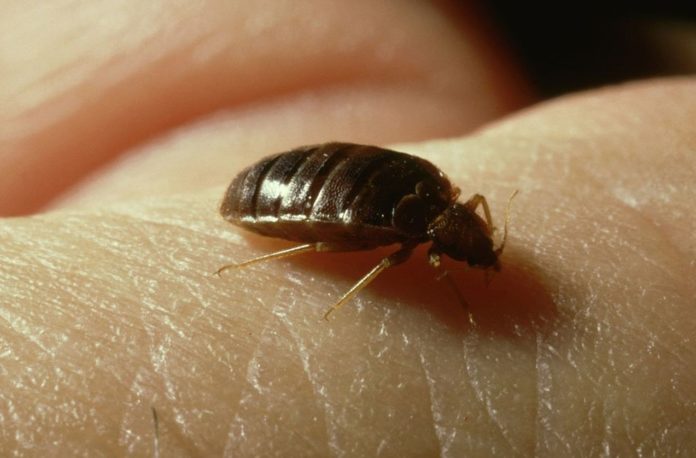Bed bugs, unlike most other human pests, only feed on their hosts for a short period of time before fleeing to hide until it is time for their next meal.
Bed bugs (Cimex lectularius) are blood-sucking insects that reside near humans. They have spread over the world and have become one of the most difficult pests to control indoors.
They are nocturnal and employ a variety of sensory cues to discover and orient themselves to their human hosts. They return to a refuge on or near the sleeping surface after feeding, usually on a sleeping human, but not directly on the host.
Dr. Zach DeVries of the University of Kentucky and colleagues theorized that while human skin smells attract starving bed bugs, human skin substances may also keep them away from their hosts
“We already knew that human body odors, carbon dioxide and warmth attract bed bugs to feed on people,” said Dr. DeVries.
“Our latest research shows the reason they do not stay on humans like other pests, such as lice, is due to lipids or triglycerides in our skin that cause them to leave their hosts and hide in nearby locations, such as beds and mattresses.”
Dr. DeVries and co-authors tested their latest discovery in the study by rubbing a strip of filter paper on participants’ skin to gather samples.
They also put the notion to the test with many populations of bed bugs raised in the lab and collected from the outside.
“Our findings were consistent across all triglyceride types, all participant groups and all bed bug populations,” added Dr. DeVries.
“Bed bugs nearly always preferred the control filter strip to the one containing skin triglycerides.”
“The bed bugs do not like to sit on skin triglycerides and refuse to stay on surfaces that contain triglycerides,” said Dr. Sudip Gaire, a postdoctoral researcher at the University of Kentucky.
“We got tremendous results by using only a small amount of triglycerides.”
While additional research is needed to determine why bed bugs dislike the triglycerides and whether there are other potential bed insect repellents in human skin, the scientists believe this is an important first step toward more successful bed bug treatment.
“There may be several potential management opportunities from our finding,” said Dr. DeVries.
“It’s possible that our findings could be used to deter bed bugs from hitchhiking on people’s belongings, thus reducing their spread.”
Source: https://doi.org/10.1038/s41598-021-01981-1
Image Credit: Getty
You were reading: Bed bugs don’t like living in TAG’ed shelters like human body, study shows
